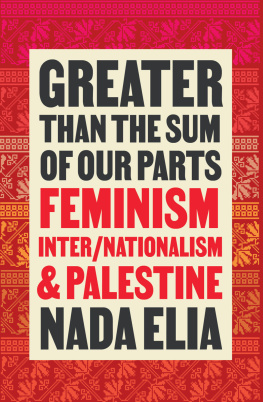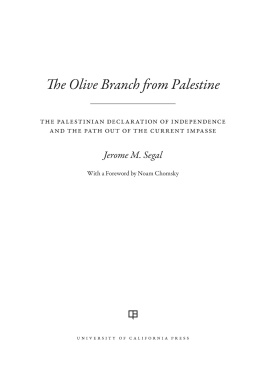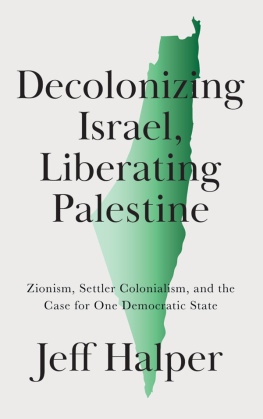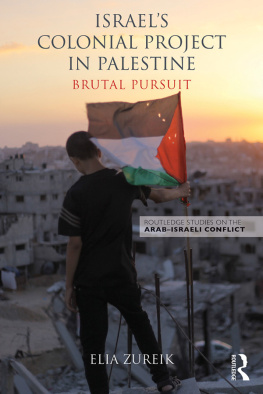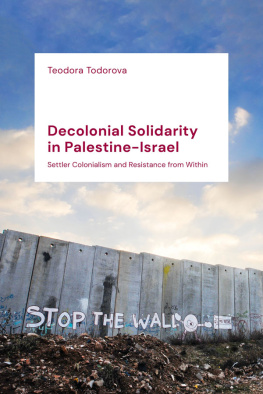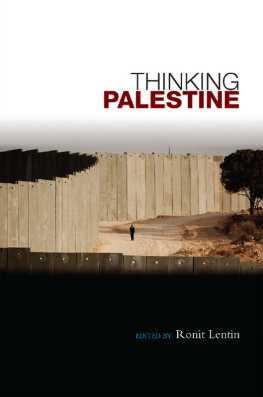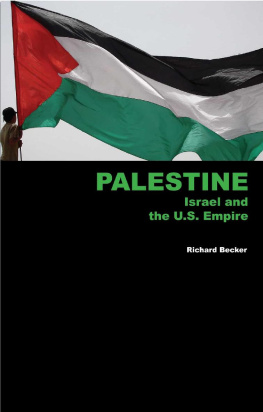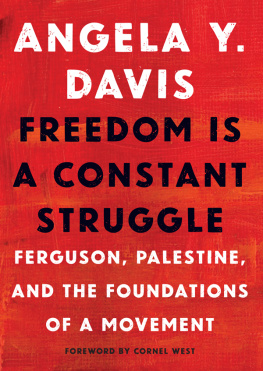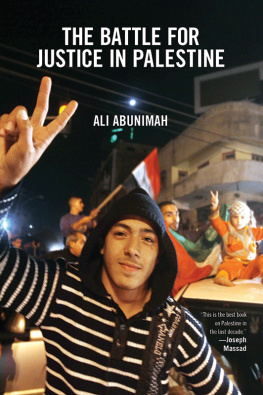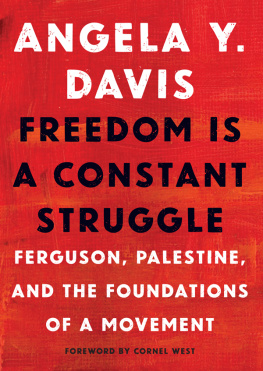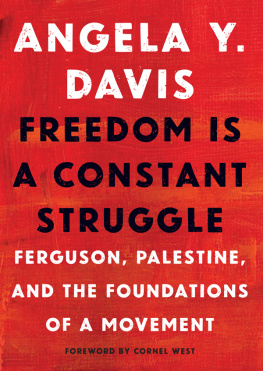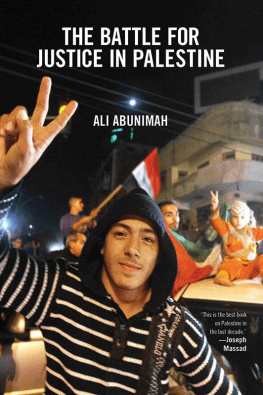Contents
Guide
Greater Than the Sum of Our Parts
Precisely the book our movements need and deserve. Crafted from decades of transnational activism and based on radical intellectual traditions, Nada Elia brilliantly weaves together the challenges of our time and the political frameworks necessary to overcome them.
Noura Erakat, Associate Professor,
Rutgers UniversityNew Brunswick
Nada Elias Greater Than the Sum of Our Parts is an inspiring call to action that deconstructs the many oppressive systems we currently find ourselves struggling against, and shows us the way forward.
Adam Horowitz, Executive Editor, Mondoweiss
I am so grateful that a book such as Greater Than the Sum of Our Parts finally exists! Reading it felt like drinking cold water on a parched day. The writing is bold and brave, the analysis clear-sighted and unflinching. And yet somehow, on top of all this, the book is full of heart, fierce love and radical empathy. A must read.
Jen Marlowe, author of I Am Troy Davis and The Hour of Sunlight
In Greater Than the Sum of Our Parts, author and long-time activist for Palestinian liberation Nada Elia makes a compelling, even irresistible, case for moving beyond rights and statehood for Palestine to a truly decolonial future. Grounded in the analysis of actual struggles, the book is informed by her commitment to abolitionist feminist practice, which reorients the vision of what a post-Zionist Palestine could look like in crucial ways. Defined by solidarity rather than exceptionalism, this is a truly necessary book.
David Lloyd, Department of English, University of California, Riverside
Nada Elia offers a new map altogether: a map of survival, possibility, and hope. Like the Palestinian struggle for freedom itself, this map is collective, collaborative, built on and for radical love.
Sherene Seikaly, Associate Professor, Department of History,
University of California, Santa Barbara
First published 2023 by Pluto Press
New Wing, Somerset House, Strand, London WC2R 1LA
and Pluto Press Inc.
1930 Village Center Circle, 3-834, Las Vegas, NV 89134
www.plutobooks.com
Copyright Nada Elia 2023
The right of Nada Elia to be identified as the author of this work has been asserted in accordance with the Copyright, Designs and Patents Act 1988.
British Library Cataloguing in Publication Data
A catalogue record for this book is available from the British Library
ISBN 978 0 7453 4747 9 Paperback
ISBN 978 0 7453 4750 9 PDF
ISBN 978 0 7453 4749 3 EPUB
This book is printed on paper suitable for recycling and made from fully managed and sustained forest sources. Logging, pulping and manufacturing processes are expected to conform to the environmental standards of the country of origin.
Typeset by Stanford DTP Services, Northampton, England
Simultaneously printed in the United Kingdom and United States of America
To the young, who never forgot
Contents
Preface: Crevices of Hope
As I write this, fires are burning everywhere. Climate catastrophes, in the form of droughts, floods, heat waves, and ravaging flames, are the new normal, even as the communities most impacted by these disasters remain utterly vulnerable, with inadequate resources and nowhere to run to. Journeys to safer places, whether on small crafts ill-equipped to face hungry ocean waves, or in unventilated trucks in the scorching desert heat, prove deadly. If and when they reach a border, the refugees are unwelcome, subjected to even more violence: prison, slave labor, and deportation. Palestinian refugees, on the other hand, organize return marches to their own towns and villages, only to be shot at by the Israeli occupation forces. In the unsurpassed words of Warsan Shire: You only leave home when home wont let you stay.
The exceptional welcome afforded Ukrainian refugees while other equally desperate people are refused entry confirms that racism is at the very heart of Global North xenophobia. What we are witnessing, at the borders, is the equivalent of the worst days of apartheid, slavery, and Jim Crow laws. The Whites Only signs, temporarily stashed away, might as well be polished off and placed on full display again.
Systemic racism, like misogyny and homophobia, is a manifestation of state violence, which seems relentless. In the USA, there is currently a national debate about the ethics of allowing a ten-year-old girl to end a pregnancy resulting from rape. Let me restate that: a ten-year-old girl was raped. The recent decision of the Supreme Court of the United States has made it so that the state she lives in, Ohio, does not allow her to abort past six weeks gestation, even though her pregnancy is the result of rape and she may die in labor. Americans need not look to the Taliban for crimes against womanhood; we have our own version here in the USA, where an originalist Supreme Court still seeks guidance from a document penned over two centuries ago by the founders of a settler colonial country that sought to exterminate the Indigenous people of the continent it was stealing, while relying on the labor of enslaved Africans. Many of those founding fathers had no qualms raping young girls themselves, so as to father, but certainly not parent, children who would increase their wealth as slaveowners.
The ruthless violence of racist settler colonialism is also on full display throughout Palestine. Israeli settlers continue to attack Palestinian towns, as in Masafer Yatta, and Palestinian homes, as in Jerusalem, while Israeli soldiers continue to raze villages such as al-Araqeeb, raid cities such as Jenin, and bomb refugees in the blockaded Gaza Strip. Diaspora Palestinians such as myself are turned away at the airport if we attempt to visit our own country. If the Israeli Occupation Forces are the worlds most moral army, Ill take immorality: young children hurling rocks at tanks. That gesture, whether by children or grown women or men, captures our defiance and our irrepressible urge to live in dignity.
But this is not a book about the repulsiveness of militarism, racism, and intolerance of difference that seem to fuel todays crimes. Seventy-five years after the onset of al-Nakba, there is no avoiding a discussion of the evils committed over the decades since Israel was founded on the ruins of our homes. Nor will I shy away from discussing the murderous misogyny and homophobia poisoning our own communities, as we struggle to overcome the ravages of dispossession. Still, I do not want this book to be one more analysis of the many forms of the suffering we have endured. Despite my realism about the horrors all around us, this is a hopeful book.
The pressure from above seems unforgiving. And yes, we are cracking under it. In addition to the multifaceted violence of settler colonialism and apartheid, our communities are experiencing increased violence perpetrated by Palestinians against Palestinians, the inevitable trickling down of macro-oppression into the domestic sphere. Homophobia, domestic violence, and femicides are on the rise. Fathers are killing their daughters, and influential writers are accusing queers of placing the gay agenda above the national struggleas if queers were not part of the nation, and do not want liberation. Such are the consequences of imperial feminism, which presents womens rights as a Western gift to the benighted Orient, and of pinkwashing, which celebrates Israel as gay-friendly, because its soldiers can fly a Pride flag after torturing Palestinian prisoners.

